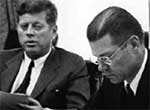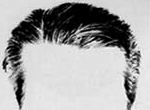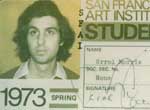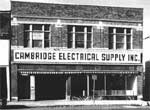�B�y� Nick Paumgarten
�
<�i�>�T�h�e� �N�e�w� �Y�o�r�k�e�r�<�/�i�>�- April 1, �2002�
�<�b�r�>�
�
�A nifty feature of the Oscars ceremony this year was a short film showing about a hundred people, some famous and some not, talking about movies. The segment was directed by the filmmaker Errol Morris, whose grim comic take on the world, in documentaries such as "Mr. Death" and "Fast, Cheap and Out of Control," might seem incompatible with the earnest, happy pomp of the Academy Awards.
One thing about Errol Morris, though, is that he likes to make television commercials. Not long after September 11th, he shot an ad for United Airlines, in which United employees, in uniform, share unscripted inspirational thoughts about the airline. According to Morris, Laura Ziskin, the producer of this year's Oscars, saw the United spot and said, "I want that guy." She called him in late December and asked whether he'd like to make a short movie about the movies, which would replace the dance number that usually kicks off the show.
Over five days of shooting (one in Boston, one in San Francisco, two in New York, and one at the White House), Morris interviewed dozens of people, civilians and celebrities, among them Christy Turlington, Wavy Gravy, Lani Guinier, Jello Biafra, Al Sharpton, Laura Bush, and a guy who happened to be wandering the set with a tray of fresh fruit. (Morris tried but failed to land interviews with the Queen Mother, Fidel Castro, and Anna Nicole Smith.) By last week, he had more than twenty-four hours of movie talk-some pretentious, some lame, some delightful, some strange-and he whittled it down to an Oscar-friendly four minutes and fifteen seconds. "I really want to do something more with this thing, as a movie," he said last week. "I'm absolutely convinced it's going to have a life after the Oscars. I'd like it to be a long-form film."
Morris's interviewing technique is unorthodox. He sits out of sight of the subject, in a curtained booth with a camera and a monitor, while the subject stands ten yards away, facing a customized device that Morris calls an "interrotron." Basically, the interrotron is a camera with a special screen that displays the live, disembodied image of Morris as heshouts out questions, makes funny faces, and orders his subjects to repeat things.
Two weeks before the Oscars, Morris was in his booth, in a studio on West Fifteenth Street. The interviews were stacked up, one per half hour, and by mid-morning the schedule was a shambles. On camera, Walter Cronkite was telling Morris about "The Best Years of Our Lives." (Morris: "Say it again?" Cronkite: "The Best Years of Our Lives." "Again!" "The Best Years of Our Lives." "And again, please!") Donald Trump was waiting, with mounting impatience, in the wings. Mikhail Gorbachev and entourage were trudging up the stairs. And Iggy Pop was in the greenroom.
When Cronkite was finished, Morris thanked him, via interrotron, and emerged, sweating, from his booth. He was dressed in a blue button-down, khakis, and blue sailing shoes. "I'd like to try to sneak you in before Gorbachev," he said to Trump. "This is insane, by the way."
Then Gorbachev strode into the studio, with two bodyguards and his regular translator, Pavel Palazhchenko. Gorbachev and Trump shook hands, and Gorbachev said something to Trump in Russian. "You're not changing," Palazhchenko translated.
"You're not changing," Trump replied, almost embracing Gorbachev, before waving him forward: "You go first, Mikhail." Soon Gorbachev was aligned before the interrotron, with his translator standing behind him like a puppeteer.
Morris looked furtively around. "For a connoisseur of the absurd, this is hard to beat," he said, and then slipped into his booth and addressed the two Russians on his screen: "So, movies!"
Gorbachev, via Palazhchenko, said that film was his favorite art form, that he loved "Gone with the Wind" ("What I call the people's drama-very impressive") and anything with Julia Roberts. Russell Crowe, too. "You have many amazing actors in this country-Jack Nicholson, Dustin Hoffman. . . ."
"Do you have a favorite Ronald Reagan movie?" Morris asked.
"I like Ronald Reagan as a political leader, but on the other hand I was not particularly impressed by his movie roles. His best role was as president."
During a brief break, Morris stepped out of his booth for a drink of water, and Cronkite walked slowly past, on his way out of the studio. "You should ask him about 'Doctor Zhivago,' " Cronkite said.
"I should ask him about 'Dr. Strangelove'!"
Back into the booth. Silence on the set. "What will be your final question, sir?" Palazhchenko said to the interrotron. They were late, he explained, for a meeting with Dr. Kissinger. After some talk about violence in films, Morris leaned toward his monitor and asked about "Dr. Strangelove."
"I believe that the warning films are important and justified," Gorbachev said, through Palazhchenko, and began expounding on the continuing risk of nuclear annihilation. "I held that famous nuclear briefcase, and I know what it would mean to press that button. Even when I was involved in a training exercise, I never pushed that button."
"Have you seen 'Dr. Strangelove'?" Morris asked.
"Nyet," Gorbachev said.
"No, he has not," Palazhchenko said.
Soon it was time for Trump, who had come prepared to talk about "Citizen Kane."
�<�b�r�>�<�b�r�>�
<�b�o�d�y�>�
Oscar Night�







